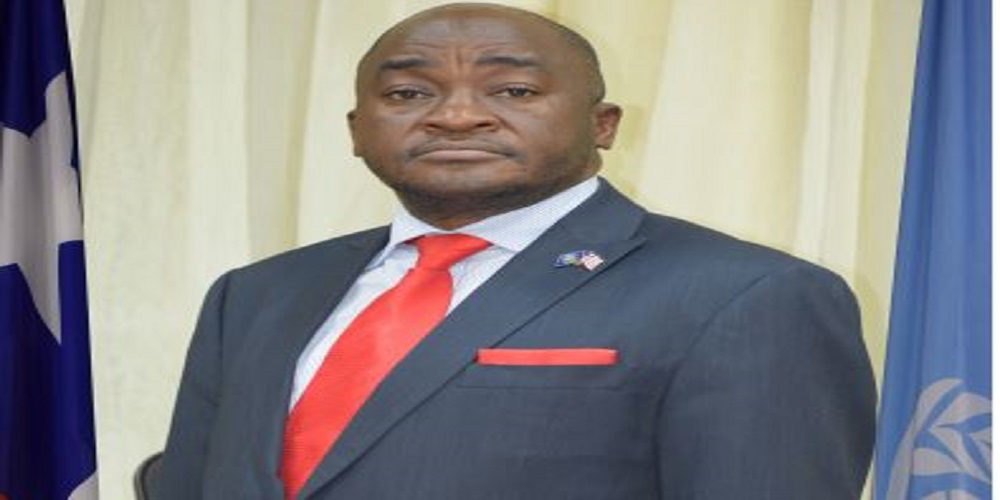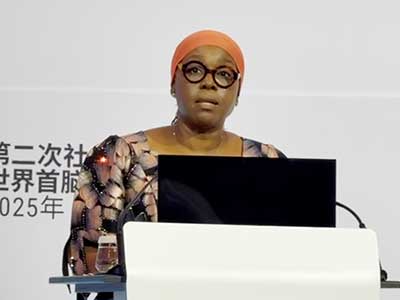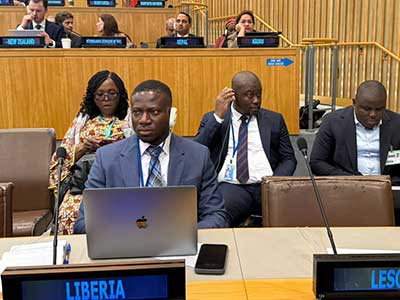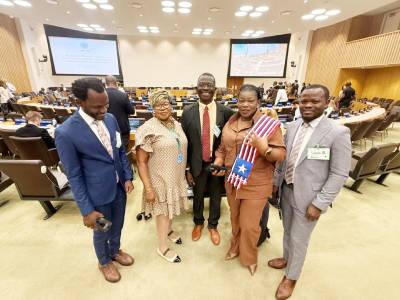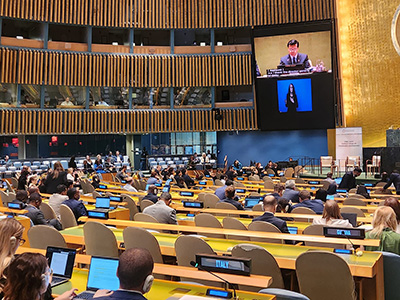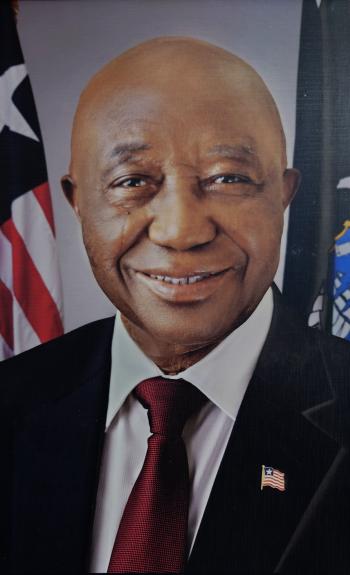Madam President of the United Nations Economic and Social Council; Excellencies:
Over the coming days, we will be seized with discussions pertinent to the realization of the decade of action and delivery for sustainable development.
As the theme for the Forum suggests; the need for accelerated action; and transformative pathways for the full realization of our global goals cannot be overly emphasized.
As we seek transformative pathways to further the implementation of the global agenda; and put the world on track to realize their targets by 2030; I crave our collective indulgence to begin by reflecting soberly on the following; which I believe must define the urgency for action:
Firstly, the United Nations Secretary-General’s Report (2019) on Progress towards the Sustainable Development Goals; among others; underscores that progress has been slow on many of the Goals; that the most vulnerable people and countries continue to suffer the most; and that the global response; thus far, has not been ambitious enough.
Secondly, the report also acknowledges that the shift in development pathways to generate the transformation required to meet the goals is not advancing; either at the speed or scale required. This situation is further compounded by the socio-economic impacts of the COVID-19 Pandemic. Additionally; the mobilization of finance remains a major challenge.
With this backdrop, getting back on track for achieving the Sustainable Development Goals requires robust concrete measures; not just to change this narrative; but also, to accelerate implementation.
Madam President:
The Decade of Action and delivery began; howbeit, amid the COVID-19 Pandemic. As a consequence of the socio-economic impacts of the Pandemic, the potential to reverse development gains and hamper progress towards achieving the Sustainable Development Goals (SDGs) remain high. With the looming devastating impacts, we stand the risk of “leaving millions behind”; particularly, from Least Developed Countries (LDCs), who are amongst the hardest hit by the Pandemic.
To this end, while taking stock of where we stand on the implementation of the 2030 Agenda; this Forum also provides the opportunity to recommit to our pledge of “leaving no one behind”; and reaching the furthest behind first. Enhanced global support will be needed by developing countries; particularly, Least Developed Countries (LDCs) across the three dimensions of the Sustainable Development Goals (i.e. social, economic, and environmental).
Madam President:
In January 2016, the Republic of Liberia officially launched the 2030 Agenda for Sustainable Development. At this year’s High-Level Political Forum (HLPF); the Republic of Liberia under the esteemed Leadership of His Excellency Dr. George Manneh Weah, President of the Republic of Liberia will be presenting for the first time its First Voluntary National Review (VNR). (July 16, 2020).
While we have made progress on key national aggregate indicators; progress against the Seventeen (17) Sustainable Development Goals is mixed. Nonetheless, the overall direction of the progress has been strategic, ensuring that key levers of change are addressed. This has been ably guided by Liberia’s Five (5)-year (2018 - 2023)Flagship National Development Plan -The Pro-Poor Agenda for Prosperity and Development, which was envisioned and launched in 2018 by His Excellency Dr. George Manneh Weah, President of the Republic of Liberia.
As emphasized earlier; the COVID-19 Pandemic has exposed structural fragilities in countries across the world, with its socio-economic impacts posing enormous strains on abilities of countries to implement the 2030 Agenda; and regrettably, the possibility of reversing development gains, with Liberia being of no exception.
However, the Republic of Liberia remains unwavering in its commitment to implementing the 2030 Agenda and achieving the Sustainable Development Goals (SDGs). The Government of Liberia under the astute Leadership of His Excellency President George Manneh Weah continues to make strides to address inequality; gender imbalance; youth unemployment; promote inclusiveness; and initiate programs to empower the Liberian People through the provision of equitable opportunities in education; health; youth development; social protection; and promoting an inclusive and accountable public sector for shared prosperity and sustainable development.
Currently, a socio-economic impact assessment of the COVID-19 Pandemic on the implementation of the Country’s national development plan – The Pro-Poor Agenda for Prosperity and Development (PAPD); and the 2030 Agenda is underway. The results of the assessment will inform the reprioritization and implementation of Liberia’s PAPD, the 2030 Agenda; and our Post-COVID-19 Economic Stabilization and Recovery Plan; with a focus on, among others; inclusion; human capital development (particularly, the youth who constitute more than half of our population); women empowerment; and the eradication of poverty, which is central to the 2030 Agenda, and most urgent.
Finally, on behalf of His Excellency Dr. George Manneh Weah, President of the Republic of Liberia, and the Government and People of the Republic of Liberia; we extend our profound thanks and appreciation to the Secretary-General of the United Nations, H.E. Mr. António Guterres; United Nations Deputy Secretary-General, H.E. Ms. Amina J. Mohammed; the United Nations Department of Economic and Social Affairs (UNDESA); UNDP-Liberia; Dr. Kingsley O. Amaning, United Nations Acting Resident Coordinator in the Republic of Liberia and the entire United Nations Country Team in Liberia; as well as Liberia’s Local, National, Regional, International, Bilateral and Multilateral Development Partners and Stakeholders for the support the Republic of Liberia continues to receive in buttressing its efforts towards the implementation of the Sustainable Development Goals.
I Thank You!

